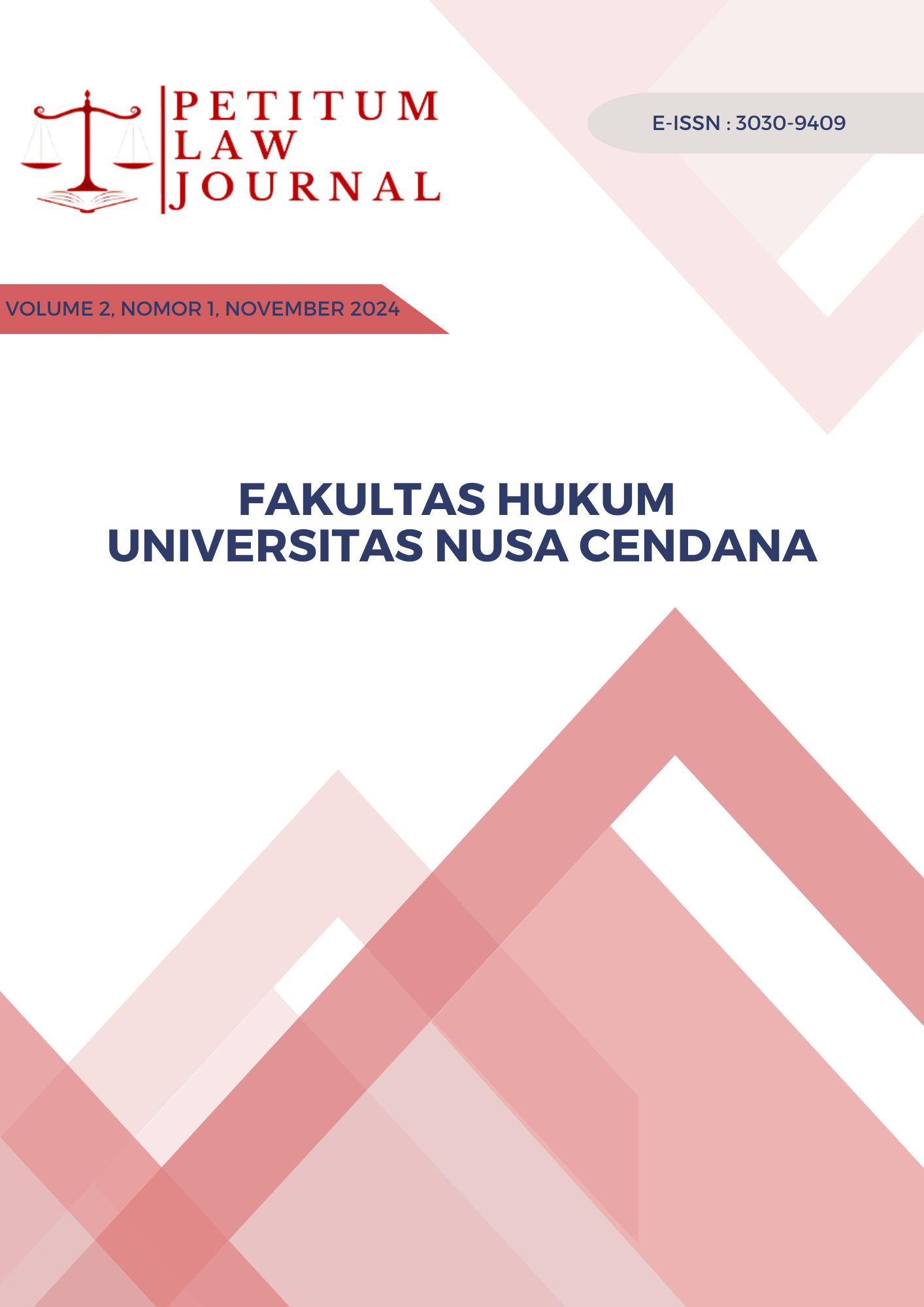Penerapan Hukum Adat "Ukun Banur" Terhadap Penyelesaian Kasus Kekerasan Dalam Rumah Tangga di Desa Biau Kecamatan Io Kufeu Kabupaten Malaka
Main Article Content
Abstract
Customary law was born together with humans as its creators. Where there is society there is law. As is the case in Biau village which has customary law known as ukun banur. Ukun banur means teachings or prohibitions that have been established and are still maintained today in resolving various cases that occur. The specification of this research is empirical legal research. The data taken is primary data and secondary data collected by interviewing informants, literature review and qualitative descriptive analysis. The objectives of this research are (1) To determine the application of Ukun Banur customary law to the resolution of cases of domestic violence in Biau village, Io Kufeu subdistrict, Malacca district. (2) To find out what are the inhibiting factors in the application of Ukun Banur customary law in resolving cases of domestic violence in Biau village, Io Kufeu subdistrict, Malaka district. Based on the research results, the researcher found that the application of Ukun Banur customary law to resolve cases of domestic violence in Biau village, Io Kufeu subdistrict, Malaka district, uses two mechanisms, namely using a pure customary law mechanism and a mixed mechanism, namely involving the local government. The inhibiting factor in implementing Ukun Banur customary law is that public awareness is still low and they are not afraid and ashamed of the customary sanctions they receive. The customary sanctions given do not have legal force and there are no regulations from the local government so they are not binding for all communities.

